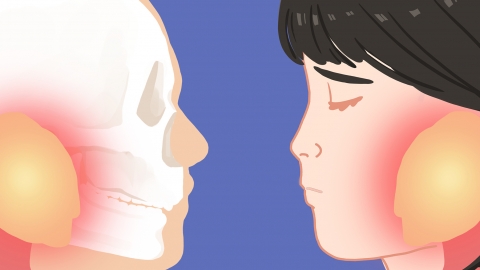腮腺炎经常复发What to do
Under normal circumstances, frequent recurrence of parotitis may be caused by long-term low immunity, inadequate oral hygiene, chronic obstructive parotitis, recurrent parotitis, or salivary gland stones. It is recommended to seek medical attention promptly, identify the underlying cause, and then improve the condition under a doctor's guidance through general management, medication, surgical treatment, and other approaches. Specific causes are analyzed as follows:

1. Long-term low immunity: Prolonged熬夜 (staying up late), excessive fatigue, or malnutrition can lead to decreased immune function, making the parotid gland susceptible to repeated viral or bacterial infections, resulting in recurrent parotitis. It is important to develop healthy lifestyle habits to help boost the body’s immunity.
2. Inadequate oral hygiene: Failure to rinse the mouth after meals or incomplete tooth brushing allows bacteria to proliferate in the oral cavity, which may travel retrograde through the parotid duct and cause recurrent infection. Brush teeth twice daily (morning and night) with a soft-bristled toothbrush using the Bass brushing technique for three minutes each time.
3. Chronic obstructive parotitis: Narrowing or blockage of the parotid duct leads to poor saliva drainage, promoting bacterial growth and causing chronic inflammation. This manifests as recurrent swelling and pain in the parotid gland, worsening during eating. Patients should follow medical advice to use medications such as cefuroxime axetil tablets, amoxicillin capsules, or metronidazole tablets to control infection.
4. Recurrent parotitis: Commonly seen in children and adolescents, this condition results from incomplete development of the parotid gland or abnormal immune function, leading to repeated episodes of parotitis, which may gradually improve in adulthood. During acute flare-ups, antiviral and anti-infective medications such as ribavirin granules, cefaclor capsules, and ibuprofen suspension should be used as directed by a physician to relieve symptoms and pain.
5. Salivary gland stones: Mineral deposits in saliva form stones that block the parotid duct, impeding saliva outflow and triggering recurrent parotitis accompanied by parotid swelling and pain. For small stones, drinking plenty of water and chewing sugar-free gum can stimulate saliva production and help expel the stone. Larger stones require sialendoscopy-guided stone removal, where an endoscope is used to extract the stone and clear the duct.
In daily life, avoid consuming spicy or acidic foods to reduce irritation to the parotid gland. Gently massage the parotid area after meals to promote saliva drainage. Regular parotid ultrasound examinations should be performed to monitor the condition of the gland and ducts. Comprehensive care can help reduce the frequency of parotitis recurrence and maintain parotid gland health.








